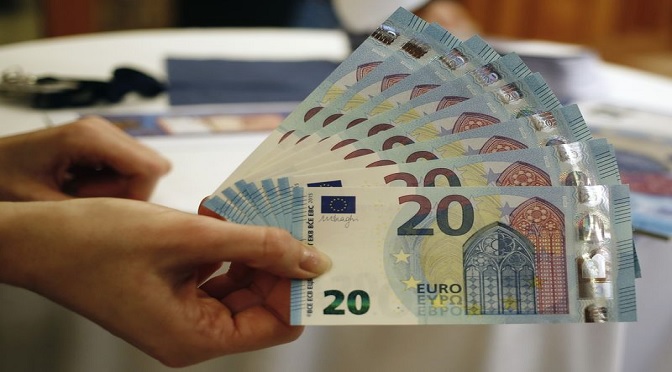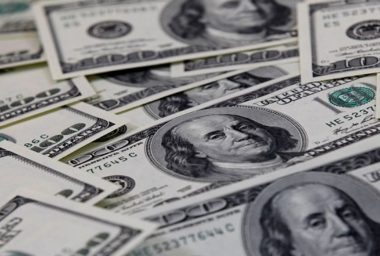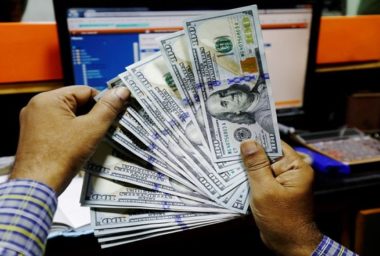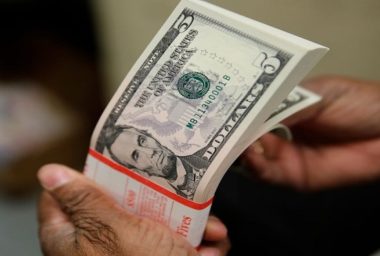-
Authoradmin
-
Comments0 Comments
-
Category
By Tom Finn
LONDON (Reuters) – The euro fell toward a two-month low on Tuesday before a meeting by the European Commission on Italy’s budget that could see Brussels take the unprecedented step of rejecting it and demanding changes.
A dispute over Italy’s spending plans and doubts about the leadership of Britain’s prime minister, mired in a stalemate over Brexit, means investors are focusing on the likelihood of further political turmoil in Europe.
That contributed to broad risk aversion on Tuesday, with the safe-haven Japanese yen and Swiss franc strengthening while higher-yielding currencies like the Australian and New Zealand dollars fell.
Worries about Italy’s spending has bred some doubt about the European Central Bank’s plan to raise interest rates next summer and that has hurt the euro. On Tuesday, it fell 0.2 percent to $1.4390, nearing a two-month low of $1.4325 hit on Oct. 9. (EUR=EBS)
Italy’s bond yields ticked up on Tuesday before the meeting. Mario Centeno, the head of the Eurogroup of eurozone finance ministers, said on Monday he was confident an agreement could be reached.
“The prospect of a normalization of monetary policy was the main reason why the euro was able to appreciate over the past year. However, there is a rising risk that this support is now going to crumble,” Commerzbank (DE:CBKG) analyst Thu Lan Nguyen said.
Tensions are likely to heighten between Rome and Brussels, especially if the European Council launch an “Excessive Deficit Procedure” against Italy, said Philip Wee, currency strategist at DBS in a note.
“This would require Italy to provide a plan of corrective action to rein in its large public debt, currently at 130 percent of GDP vs the 60 percent Maastricht rule,” Wee said.
The dollar index (DXY), a gauge of its value against six other major currencies, rose to a two-month high of 96.158 and traded up 0.1 percent.
That was due to the turbulence in Europe continent and expectations that a strong U.S. economy may see the Federal Reserve raise rates faster than assumed.
Britain’s pound traded up 0.2 percent at $1.3 after falling on Monday on fears that the Irish border issue and disagreements within Britain’s ruling Conservatives over Brexit could see Prime Minister Theresa May face a serious leadership challenge.
“Whispers of a growing number of Tory MP rebels losing their patience with May have put the risks of a lengthy UK political impasse and a Brexit policy mistake (exiting the EU without a deal) back on the table,” said Viraj Patel, a currency strategist at ING.
“We think this noise is likely to keep the pound on the back foot this week,” he said.
The dollar weakened 0.4 percent against the Japanese yen to trade at 112.32 yen, gaining as risk-shy investors retreated from Asia’s main share markets.
The Australian dollar lost 0.1 percent versus the U.S. dollar on Tuesday, changing hands at 0.7089. It lost 0.6 percent on Monday.
Recent Comments
- Starlight Herot on Euro Higher on German Data, Sterling Edges Lower
- Frost Dragont on Euro Higher on German Data, Sterling Edges Lower
- Gwinnettt on Euro Higher on German Data, Sterling Edges Lower
- Vanessat on Euro Higher on German Data, Sterling Edges Lower
- Christinet on Euro Higher on German Data, Sterling Edges Lower
Archives
- April 2025
- March 2025
- February 2025
- January 2025
- December 2024
- November 2024
- October 2024
- February 2024
- July 2023
- July 2021
- May 2021
- March 2021
- February 2021
- September 2020
- May 2020
- February 2020
- December 2019
- November 2019
- October 2019
- September 2019
- August 2019
- July 2019
- June 2019
- May 2019
- April 2019
- March 2019
- February 2019
- January 2019
- December 2018
- November 2018
- October 2018
- September 2018
- August 2018
- July 2018
- June 2018
- May 2018
- April 2018
- March 2018
- February 2018
- January 2018
- December 2017
- November 2017






